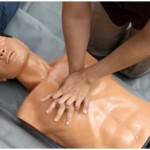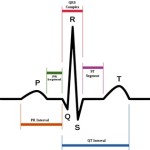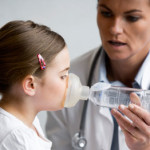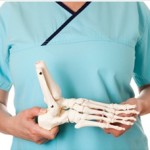Congestive heart failure (CHF) or congestive cardiac failure (CCF) stands for the inability of the heart to provide sufficient pumping of blood to maintain the blood flow in the organism. It is a common diagnose and potentially deadly condition that can occur in adults, but mainly people older than 65 years suffer from this condition. Fluid overload is a result from congestive heart failure because fluids, mainly water, build up in the arms, legs, lungs or other organs. Since the water becomes congested under the skin, this condition got the name congestive heart failure. However some patients may often have normal fluid balance, or more rarely they suffer from dehydration.
 Signs and Symptoms of Congestive Heart Failure
Signs and Symptoms of Congestive Heart Failure
The common symptoms for this condition include shortness of breath, leg swelling and weakness. The first and most common sign for left-sided failure is respiratory distress due to which the patient has increased breathing rate, and will have dyspnea (shortness of breath). Easy fatigue and exercise intolerance are also signs. Due to the poor blood circulation, dizziness and confusion may also occur as symptoms. As a marker of high blood flow or increased intra heart pressure, the doctors can hear an additional heart sound called gallop rhythm, which is another symptom of this condition.
Right sided failure causes peripheral edema or foot and ankle swelling. This is caused due to congestion of excess water from the capillaries in the peripheral dependent parts of the body. Nocturia or frequent night time urination is another sign. This occurs because the accumulated excess water from the legs is returned in the bloodstream during night time lying in bed. In rare cases hepatomegalia may occur, which is enlargement of the liver that results in a damaged liver function.
Causes Of Congestive Heart Failure
It is important to notice that the cardiac failure is not the same as a heart attack (myocardial infarction) or a cardiac arrest which are other cardiac related illnesses that can cause heart failure. Heart failure can be caused by different conditions that can damage the myocardium (heart muscle) or overload the heart. These conditions include:
- Hypertension or higher blood pressure
- Ischemic heart disease or the more commonly known as atherosclerotic heart disease which is the most common reason for the heart related problems
- Cigarette smoking
- Dilated cardiomyopathy – weakened and enlarged heart muscle
Other causes may include improper diet, intake/restriction of fluids, abuse of medications, excessive salt intake or other conditions. The pathophysiology of this disease is complicated and should take in consideration the specific situation the patient has from the attending specialist. It is important to consult your health care provider for further information that is related with congestive heart failure.
Diagnosis
The congestive heart failure is diagnosed with an examination of the patient, and the most common test that can indicate this condition is echocardiography. With the use of ultrasound and imaging techniques it can be diagnosed by a specialist. Although the ECG/EKG or electrocardiogram is not specific for diagnosing heart failure, it is used in the examination to exclude heart dysfunctions. Also routine blood tests are performed to check the common blood electrolytes like Potassium and Sodium. Then the liver function, renal function and thyroid function test can be done. The BNP or B-type natriuretic peptide is a specific test that indicates heart failure.
Treatment
The treatment for congestive heart failure includes many options that depend on the type of CHF and depending on the cause of the condition given the patient’s situation. The treatment includes regular medications, lifestyle changes and monitoring the patient’s progress.
The medications that can be used for treatment are various, and it is important to know how they work to manage your condition.
- ACE (angiotensin converting enzyme) inhibitors are used for treatment of hypertension (high blood pressure)
- ARBs (angiotensin II receptor blockers) that are used to dilate the blood vessels and to reduce the blood pressure, which are similar to ACE.
- Beta blockers that block the binding of the stress hormones to the beta receptors that are found in the cells of the heart muscles, smooth muscles, kidneys, arteries and other tissues. They protect from heart attack and hypertension.
- Digoxin is used to control Sodium and Potassium inside heart cells, and it helps the heart to maintain a normal, strong and steady heartbeat.
- Diuretics help to excrete the fluids from your body.
Sometimes the only solution to improve the heart function is surgery. The procedures that are used to treat CHF are bypass surgery, LVAD (left ventricular assist device), heart transplant or heart valve surgery.
Life style changes include measures like giving up smoking, diet changes to improve your health, light exercises that can help you maintain the regular function of the body and sometimes if a surgery is necessary, information on how to treat your body after the implanted devices are placed or if it is required a heart transplantation what type of palliative care to consider.
The measures that should be taken to monitor the patient’s progress and response on the treatment for heart failure are the fluid balance or the calculation of fluid intake/excretion, and monitoring the body weight for fluid shifts.






















